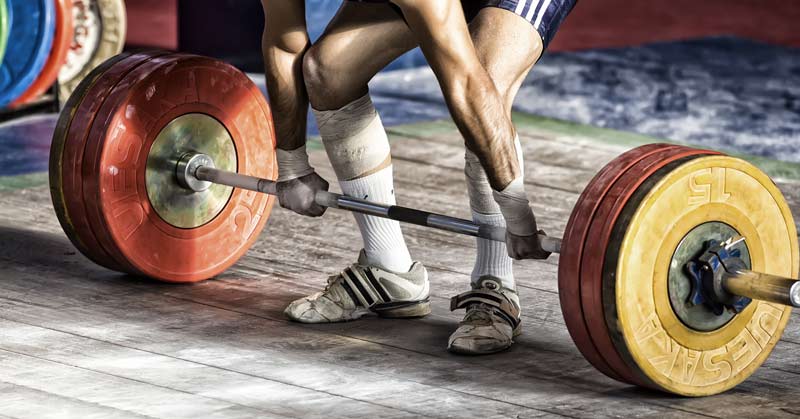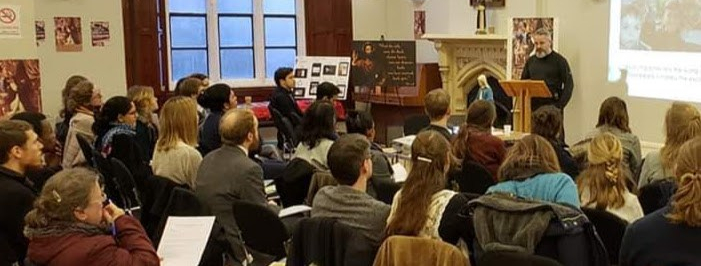Definitions of the word 'manhood' more or less agree that we’re talking about a state or condition of being an adult male with the associated qualities and responsibilities.
Today’s debate on masculinity has come about because we have lost a fixed point of reference for those qualities and responsibilities. Being a man is no longer about virtue and duty, tough physical work, commitment to marriage and a family or sacrifices for the greater good of society.
Modern attitudes - and luxuries, often in the form of technologies - have removed many of the requirements for men to perform their traditional duties. Modern thinking tells men to detach themselves from ‘out-dated’ aspects of being a man, and sadly equates – and broadcasts – the expression of negative male behaviours with the sum of the essence of manhood.
True, men exploit their masculine characteristics and strengths through violence: to abuse, rape, intimidate, rob and murder. Good men must do their utmost to prevent this exploitation and, on behalf of all men, should ask forgiveness from our women for the uncountable occasions where this behaviour goes unchecked and unpunished.
But this is not manhood! This is not what authentic masculinity is. Those many individuals who do abuse their power, strength, wealth and sexual desires aren’t men. They are boys. We aren’t suffering a crisis of masculinity so much as a crisis of boyhood, where more and more men in our society are crowding around the doorway of mature manhood unable to step over the threshold.
These immature boys are leaving their wives and families because they can’t handle their manly duties; these boys are turning to violence and crime to prove their manly worth; these boys are only interested in pleasure and entertainment; these boys remain depressed and anxious in their 20s, 30s and 40s because they haven’t been initiated into their true masculine roles and responsibilities.
Males gravitate towards extremes. When we allow extremes to become our expectations for behaviour, we turn away from our real purpose. On the excessive end of those extremes, manhood is equated with brutality. But on the deficient end we have mediocrity—being unmotivated, bland and weak. Both of these extremes are considered by one group or another to be the norm for manhood and both result in an inability to take on real responsibility, to commit to a job or to a relationship.
So, having lost our points of reference about what it means to be a man, where does that leave a Catholic understanding of manhood?
Firstly, Catholic manhood knows its roots

When masculinity is so cut adrift from its purpose today, we need to find some absolutes. Is it possible to reach back to a fixed point where we can say, this is the basic principle for what manhood is meant to be?
The Catechism of the Catholic Church suggests it is. It states:
In creation, God laid a foundation and established laws that remain firm, on which the believer can rely with confidence, for they are the sign and pledge of the unshakeable faithfulness of God’s covenant. For his part man must remain faithful to this foundation, and respect the laws which the Creator has written into it. [CCC 346]
So, what firm laws did the Creator write into the foundation of manhood? Let’s go back to the beginning, to Genesis. Here are the laws: God told Adam to procreate (be fruitful and multiply); God gave him primacy or dominion over creation; He told him to protect (to keep or guard) His creatures and the creation covenant, and to provide for himself and his people (to till the land). Procreation, primacy, provision and protection. Those are the laws stitched into the fabric of manhood.
And what does that still mean for men today? Scott Hahn develops this in his book, A Father Who Keeps His Promises, by stating that God’s first and foundational covenant was a marriage covenant between Adam and Eve, the first couple. The fruit of their covenant love was children. It means that men are meant to be a father of a family (biological or spiritual); men are meant to lead that family, to provide for them and to protect them, within the covenant of love established by God. By default, fatherhood also means commitment, responsibility and fidelity.
Those are your absolutes for being a man. Manhood is not defined by occupation but by vocation.
Catholic manhood knows its reason

Why is it that men are created to be fathers? Pope St John Paul II tells us in Familiaris Consortio that human fatherhood is meant to ‘reveal and relive on earth the very fatherhood of God’ [FC 25].
What does this mean? It means that we men have the inconceivably terrifying and breath-taking task of transmitting the reality of God’s paternity to others – specifically to the children in our care – so that they come to know who God the Father is! Through us! God has let us loose with His paternity! We are the primary manner by which others upon this earth come to know God the Father.
The human father is a link between God the Father and His children. He is the voice of the Father that our children cannot hear, the face of the Father that our children cannot see, and the touch of the Father that our children cannot feel. If fathers turn their hearts to their children, their children will turn their hearts to God. If fathers listen to their children, their children will know the listening heart of God. If fathers show mercy to their children, their children will discover the merciful heart of God. The human father is indeed the visible icon of the heavenly Father.
Why do we so desire a father’s approval? Because we want to be approved by God the Father. Conversely, when we struggle with our belief in the presence of God, in the love of God and in the faithfulness of God, it is because we have struggled to see presence, love and faithfulness in our own fathers.
Paul Vitz, in his book, Faith of the Fatherless: The Psychology of Atheism, discovers a startling pattern: atheism arises in people with absent, deceased or abusive fathers. Disappointment in one's earthly father frequently leads to a rejection of God. By contrast, prominent defenders of religious belief – and he includes Blaise Pascal, John Henry Newman and G.K. Chesterton - were blessed with attentive, loving and caring fathers.
Look around at the world today. An increasingly fatherless world is an increasingly secular world. Look at the absence of men in church, and the ease with which their children disappear from it once they hit their teens. Look at the research which shows that, if the father is the primary church-goer and living example of faith, his children have a greater likelihood of practising the faith into adulthood than even if both father and mother regularly practise their faith. Where just the mother attends church, there is the least likelihood that the children will continue practising their faith into adulthood.
Why? Echoing St John Paul the Great, Cardinal Ratzinger provides an answer:
“Human fatherhood gives us an anticipation of what [God the Father] is. But when this fatherhood does not exist, when it is experienced only as a biological phenomenon, without its human and spiritual dimension, all statements about God the Father are empty..." [Palermo, 2000]
'Fatherhood experienced only as a biological phenomenon': this is sex without considering the consequences, feckless fathers leaving behind single mothers, sperm donors turning fatherhood into a commercial transaction. Any biological act that is not followed up with the commitment and duty of fatherhood.
'All statements about God the Father are empty': how can we say that God the Father is good, when our own father abused us? How can we say that God the Father is loving, when our own father left us when we were children?
Cardinal Ratzinger continues:
"The crisis of fatherhood we are living today is an element, perhaps the most important, threatening man in his humanity. The dissolution of fatherhood and motherhood is linked to the dissolution of our being sons and daughters.”
Interestingly, one of the antonyms of ‘dissolution’ is ‘inauguration’. It’s a wonderful thing that true manhood helps inaugurate – invest or initiate – others into the family of God. It’s a very majestic term and a very stately activity. Indeed, St Paul says, “I bow my knees before the Father, from whom all paternity in heaven and on earth takes its name".
Catholic manhood knows its responsibilities

Let’s return to St John Paul the Great and the quote from Familiaris Consortio. Here is the line in context:
“In revealing and in reliving on earth the very fatherhood of God, a man is called upon to ensure the harmonious and united development of all the members of the family: he will perform this task by exercising generous responsibility for the life conceived under the heart of the mother, by a more solicitous commitment to education, a task he shares with his wife, by work which is never a cause of division in the family but promotes its unity and stability, and by means of the witness he gives of an adult Christian life which effectively introduces the children into the living experience of Christ and the Church.”
Let’s pick this apart for the next few paragraphs. What actual duties of mature Catholic men are described here?
- He ensures the harmonious and united development of all the members of the family
A Catholic father corrects, disciplines, teaches, treats everyone justly and with fairness; he exhorts, encourages and provides opportunities to experience new things in life. He allocates chores and duties and provides rewards and celebrations. He looks for the strengths in his children and develops them; he looks for their weaknesses and strengthens them. He establishes a family culture, family times and seasons and helps to contain any extremes in the ebb and flow of family life.
- He exercises generous responsibility for the life conceived under the heart of the mother
A Catholic father is present and committed. He welcomes conception. He kicks his selfish boyish habits and gives the ensuing time and energy to his family. He settles the baby, feeds it, wipes its bum and changes its nappy. He gets down on the floor to play; he takes the children into the garden, the workshop, the countryside; the resources he has and the money he earns he pours into their needs rather than his own.
- He has a solicitous commitment to education
A boy’s successful transition to manhood comes about from learning how to be a man from other men, and then having his masculinity affirmed by those men. A girl will learn likewise from her mother. In practical matters, a father and a mother should teach skills and virtues necessary for the rounded education of both sons and daughters.
However, it is in spiritual matters that the father has a primary responsibility to educate.
St Augustine emphasises the father’s spiritual headship of his family in his Sermons on Selected Lessons of the New Testament. He goes so far as to compare the father’s role in the home to that of bishops in the Church:
"Discharge our office in your own houses. A bishop is called from hence, because he superintends, because he takes care and attends to others. To every man, then, if he is the head of his own house, ought the office of the Episcopate to belong, to take care how his household believe, that none of them fall into heresy, neither wife, nor son, nor daughter… Do not neglect, then, the least of those belonging to you; look after the salvation of all your household with all vigilance". [SSL XLIV]
Or St Paul to the Corinthians, if you like:
“Be watchful, stand firm in the faith, act like men, be strong. Let all that you do be done in love” (1 Corinthians 16: 13-14).
- His work should never be a cause of division in the family but promotes its unity and stability
The modern working world doesn’t make it easy for us, but a Catholic father will try to find a job close to home, a career that allows flexible hours or opportunities to work from home. He will make prudent decisions about how much overtime he does, about how much travel he undertakes, about whether the extra cash from that promotion is really worth the additional hours away from the family. Men have a tendency to define and affirm their masculinity by their careers and incomes, or use their hard work to excuse their lack of presence to their families. Man is not defined by occupation but by vocation.
- He gives witness of an adult Christian life
An adult Christian life is a life of virtue. Did you know that the Latin word for man is vir, which is at the root of the words virtue and virility? In using vir to denote ‘a man’ it also implies those qualities and properties which constitute a man. Vir is used in the Latin as a term of respect and it often signifies, emphatically, a hero.
Virtue and virility are the core foundations of becoming an authentic adult Catholic man. Virtue is about being a good man, and virility is about being good at being a man. Virtue is what makes virility noble. Virility is what makes virtue active.
Aristotle’s Golden Mean states that any virtue – let’s take courage as an example – sits between two extremes: a deficient vice and an excessive vice. The deficient side of courage would therefore be cowardice and the excessive side, recklessness.
Giving witness to an adult Christian life is a continuous, heroic determination to move away from those extremes and towards virtue – or, as The Catechism of the Catholic Church defines it, "a habitual and firm disposition to do the good."
Virility brings us back to the four divinely appointed laws of primacy, procreation, provision and protection and to some extent also describes our capacity in each area. The degree to which we have developed our capability in all four roles is the degree to which we might be considered virile, or good at being a man.
- He introduces the children into the living experience of Christ and the Church.
What is the living experience of Christ and the Church? It is the unrestrained, limitless, unbidden and unprompted, gratuitous abandonment and sublimation of oneself and one’s own desires for the good of another. In short, complete self-sacrifice.
And how does a father introduce his children into this living experience? Through his love of their mother.
Marriage, as someone once said, is an ongoing, vivid illustration of what it costs to love an imperfect person unconditionally … Just as Christ loves us. Through a selfless love of their mother, the father shows his children how Christ loves us and His Church. As the Venerable Fulton Sheen says, “Suffering and responsibility – these are the hallmarks of masculinity”.
And it ain’t easy – my wife can be as annoying as hell, and I struggled for many years of our marriage expecting her to love me as I wanted to be loved and resenting her when she didn’t. Love became conditional – I would only repay it if I felt I was receiving it.
What I didn’t realise is that, to love as a man like Christ is to always make the first move: to be the first to express sorrow, the first to forgive, the first to show a sign of affection, the first to break the cold wall of silence. St John the Evangelist writes: ‘We love, because He loved us first’!
St. John Chrysostom exhorts husbands:
"… And even if it becomes necessary for you to give your life for her, yes, and even to endure and undergo suffering of any kind, do not refuse. Even though you undergo all this, you will never have done anything equal to what Christ has done. You are sacrificing yourself for someone to whom you are already joined, but He offered Himself up for one who turned her back on Him and hated Him.
In the same way, then, as He honoured her by putting at His feet one who turned her back on Him, who hated rejected, and disdained Him, as He accomplished this not with threats, or violence, or terror, or anything else like that, but through His untiring love; so also you should behave toward your wife.
… So the Church was not pure. She had blemishes, she was ugly and cheap. Whatever kind of wife you marry, you will never take a bride like Christ did when He married the Church; you will never marry anyone estranged from you as the Church was from Christ. Despite all this, He did not abhor or hate her for her extraordinary corruption …" [Homily XX]
It’s easy to wallow in resentment and self-pity in our relationships. It’s easy for men, like the first Adam, to blame the woman for all the trouble and strife in their lives, but that’s a boyish response. The battles between the sexes will only ever be over when we men love first, when we take our computer games, our fast cars, our banter, our addictions, our lewdness, our desire for power, and nail them firmly to the Cross of self-discipline and self-denial. Then with our arms wide open and our hearts pouring out our love, we will hear our wives and our children say, “Behold the man!”
Afterword

Like committing to the gym after years of inactivity, committing to authentic manhood after years of juvenile indolence is a challenge.
Firstly, we don’t feel like we have the energy! This all sounds exhausting! Where do I start?! Secondly, once you hit the gym, it’s depressing how much further ahead other people appear to be, and how much work you have to do to get there. And finally, it’s not until we put ourselves in a position of duress and vulnerability that we find the righteous anger and the inner wherewithal to deal with and root out our apathy.
But start small. St Josemaria Escriva writes:
"Will-power. A very important quality. Don't despise little things, for by the continual practice of denying yourself again and again in such things — which are never futile or trivial — with God's grace you will add strength and resilience to your character. In that way you will first become master of yourself, and then a guide, a chief, a leader: to compel and to urge and to inspire others, with your word, with your example, with your knowledge and with your power". [The Way, 19]
If you’re reading this feeling the inertia and the exhaustion of what you need to do to be a man, know that someday, somewhere down the line, those innate masculine laws will break through and you will go, dammit, something has to change! I will get off the couch, I will go to the gym – I will step up and become a man.
Even if you are not yet a father, or that time seems a long way off, there is much you can do to prepare, to cast off your boyish habits and to take up your responsibilities.
But know this also, to take your fitness for manhood seriously, you need to be taught how to do it correctly, you have to start light, you need a coach to guide you and to hold you accountable, you need to work on areas that are injured or weaker than others – and you will plummet to depths you never knew were there and rise to summits you never imagined. And you’ll need buddies along the way to cajole and motivate you, to laugh at and with you and who push you to achievements beyond your expectations. Manhood is a challenge, but men are built for challenges
Let me end by paraphrasing a quote from Bishop Daniel Jenky of Peoria, Illinois. Where he is speaking of Catholicism, let me reference manhood:
“The age of casual Manhood is over, the age of heroic Manhood has begun. We can no longer be men by accident, but instead be men by conviction!” [cf Sermon, 14th April, 2012]
Adapted from a talk given to the Catholic Medical Association young peoples' retreat, St Dominic's Church and Rosary Shrine, London, 9 Feb 2019

